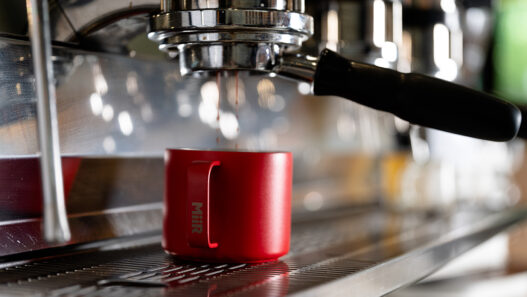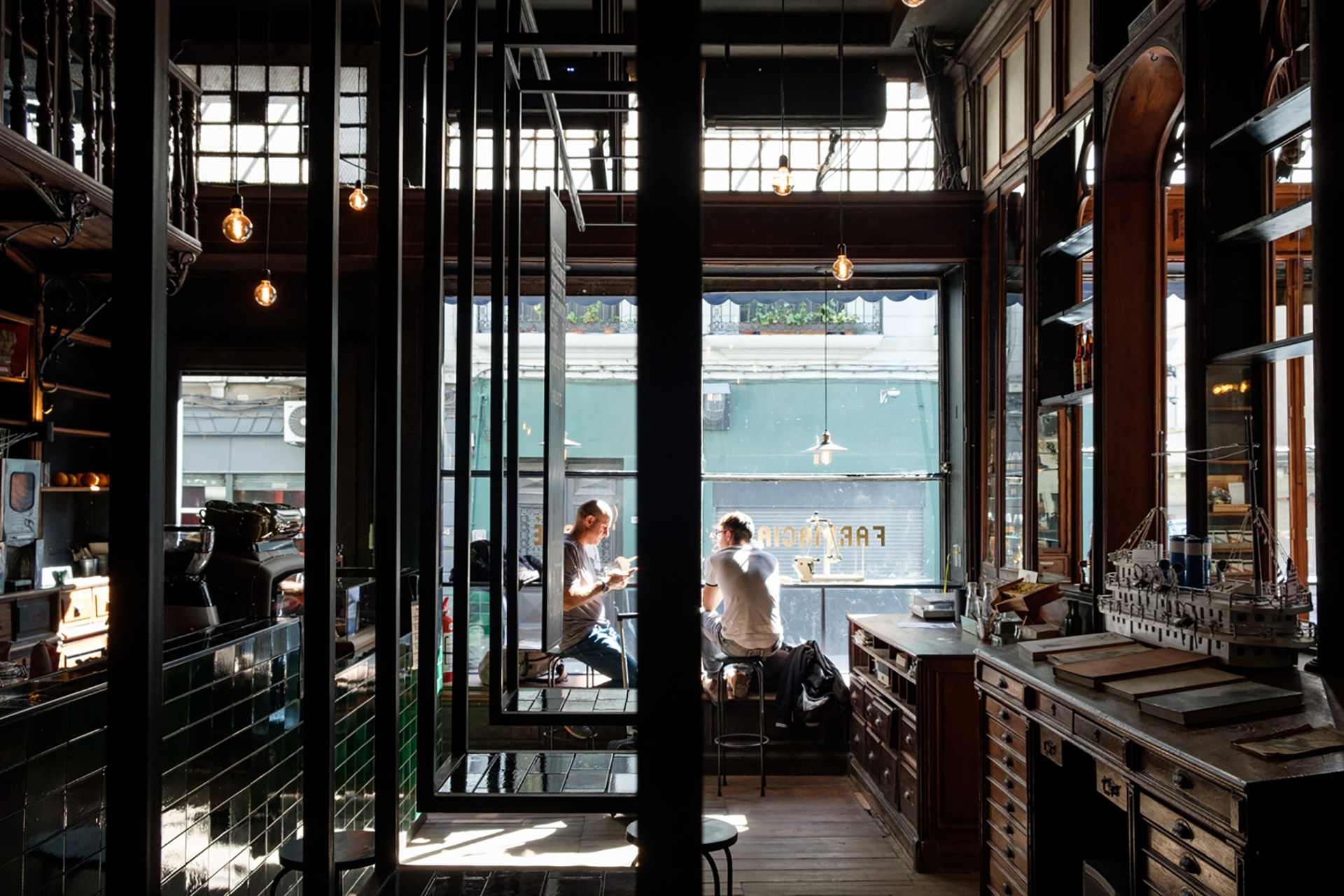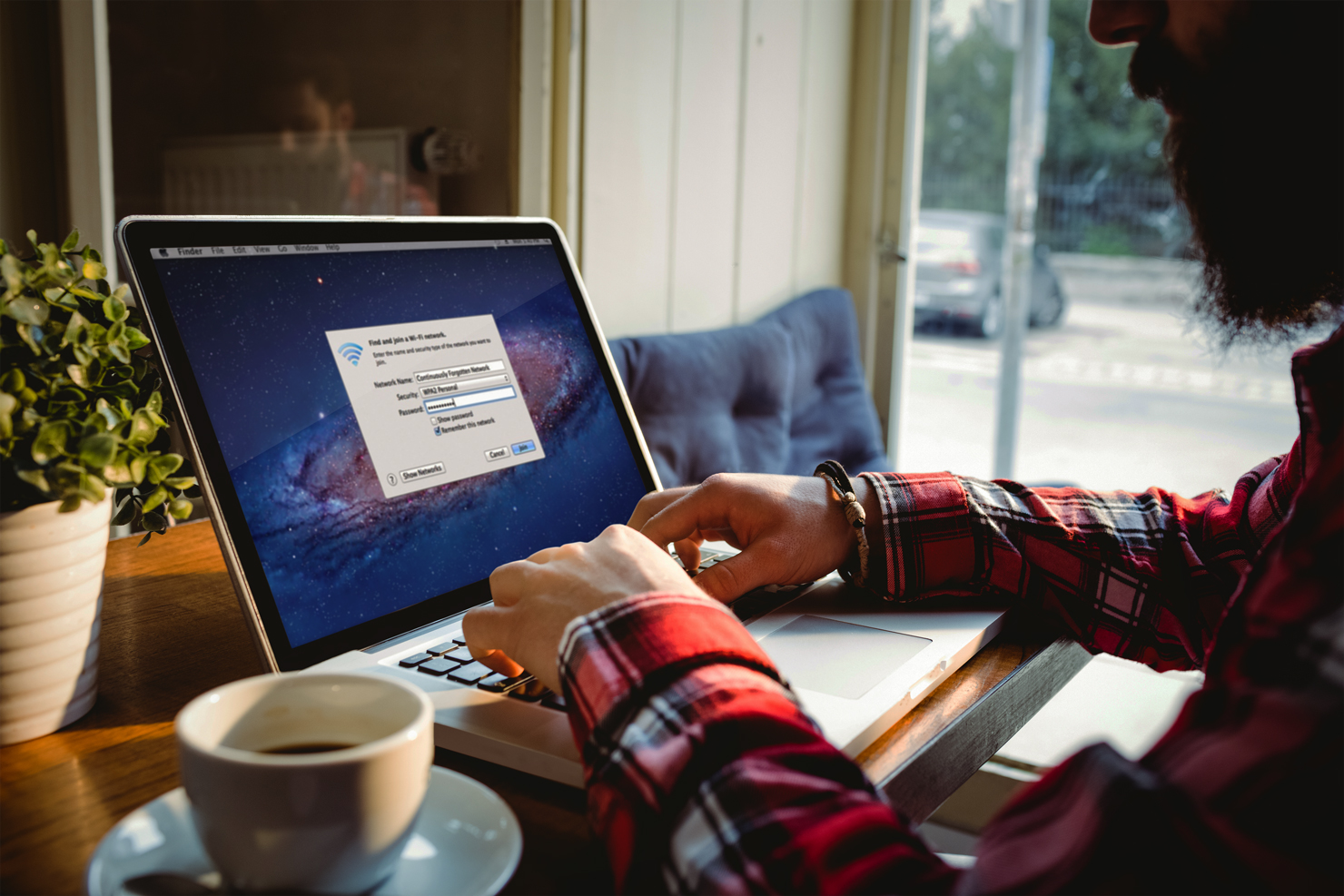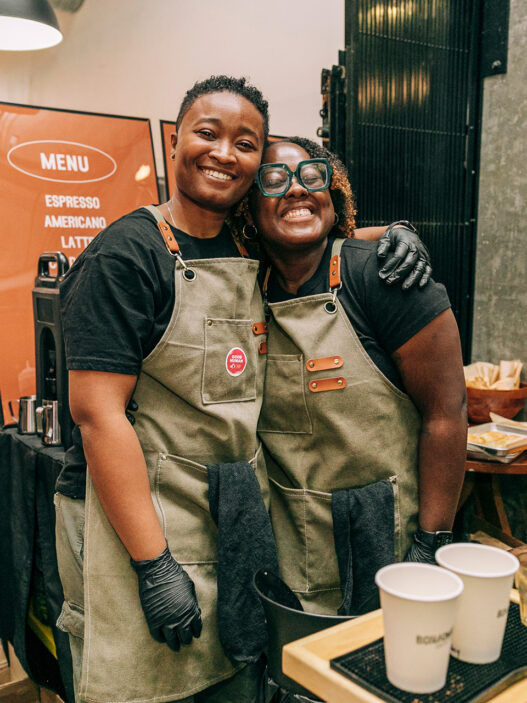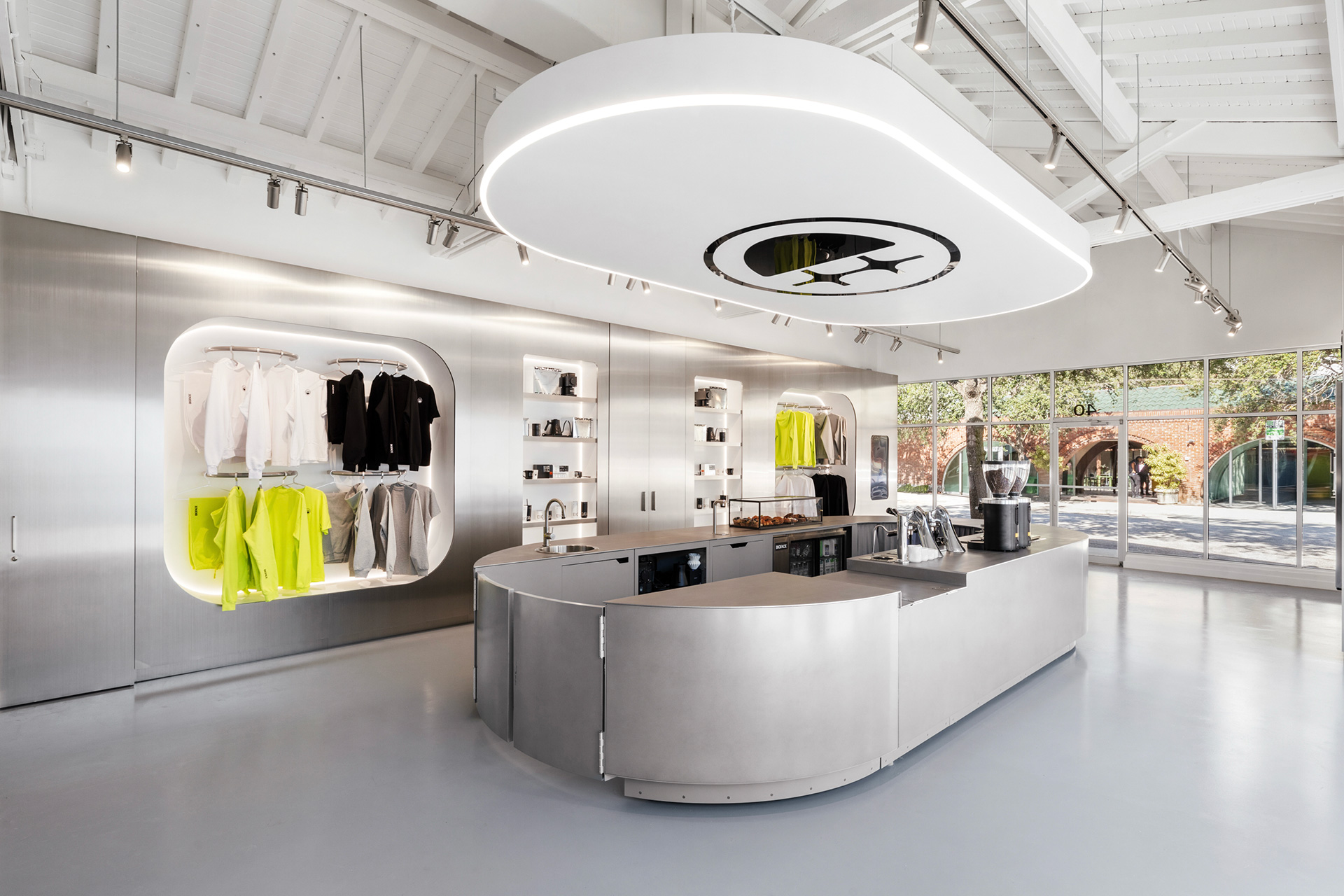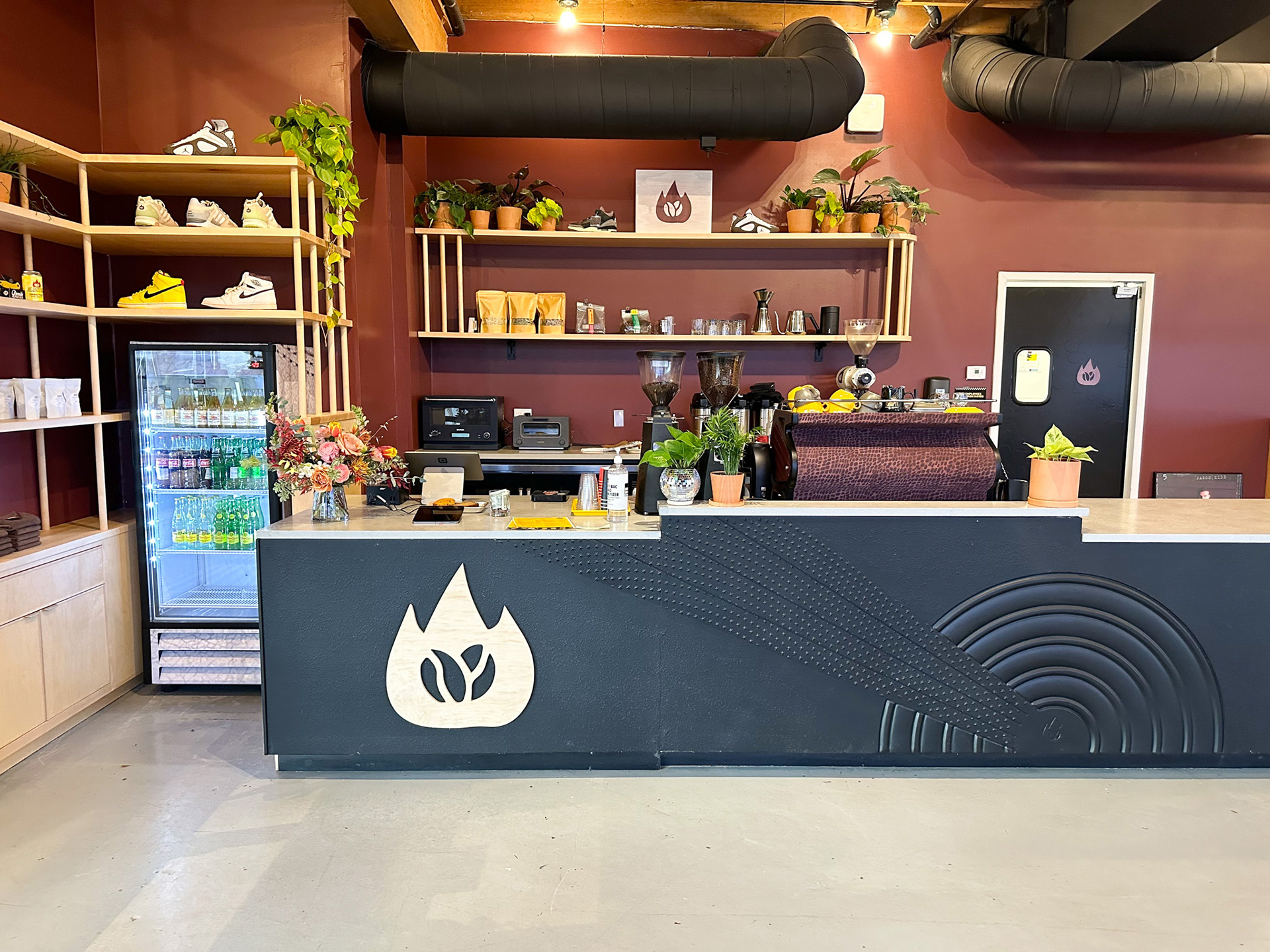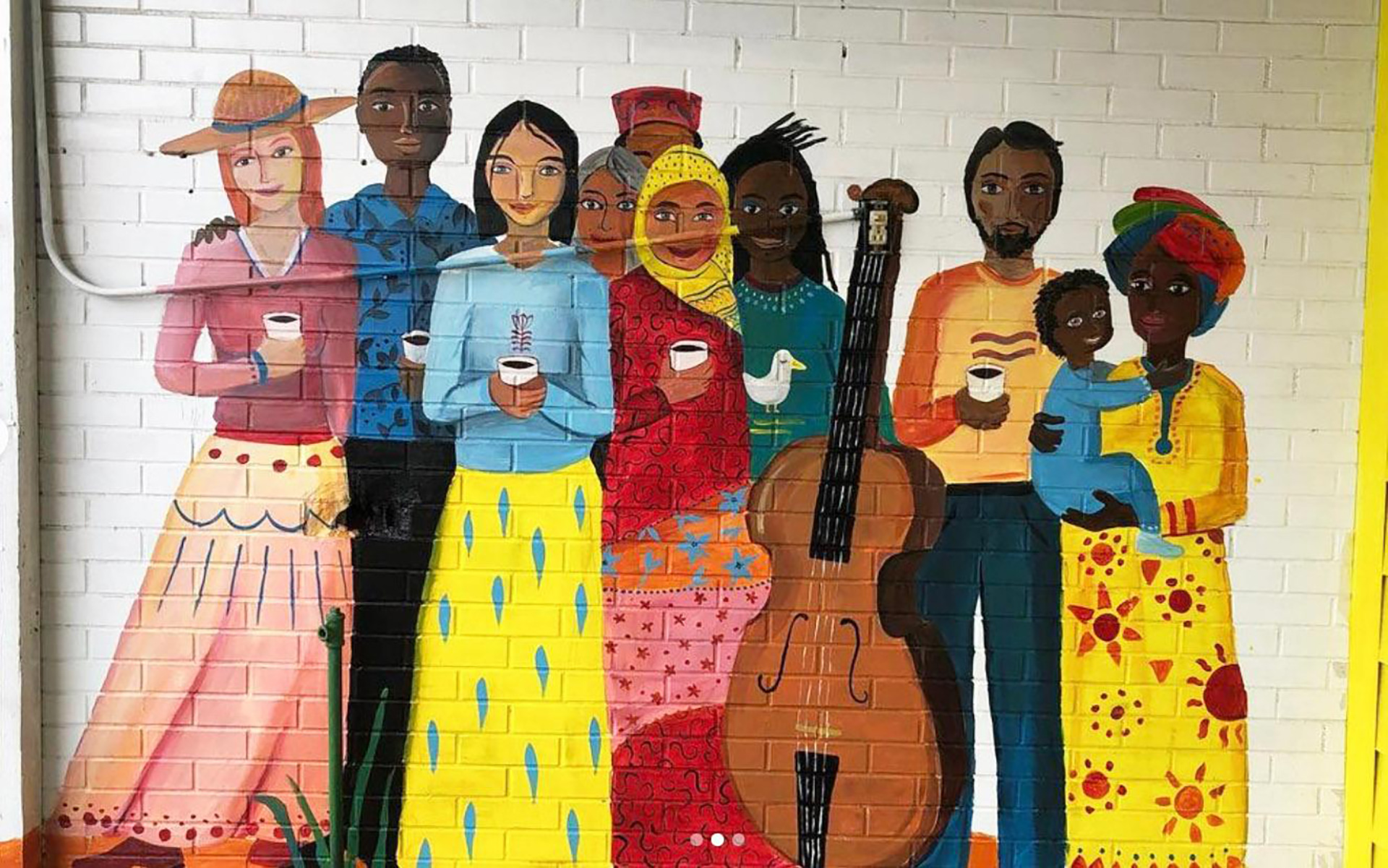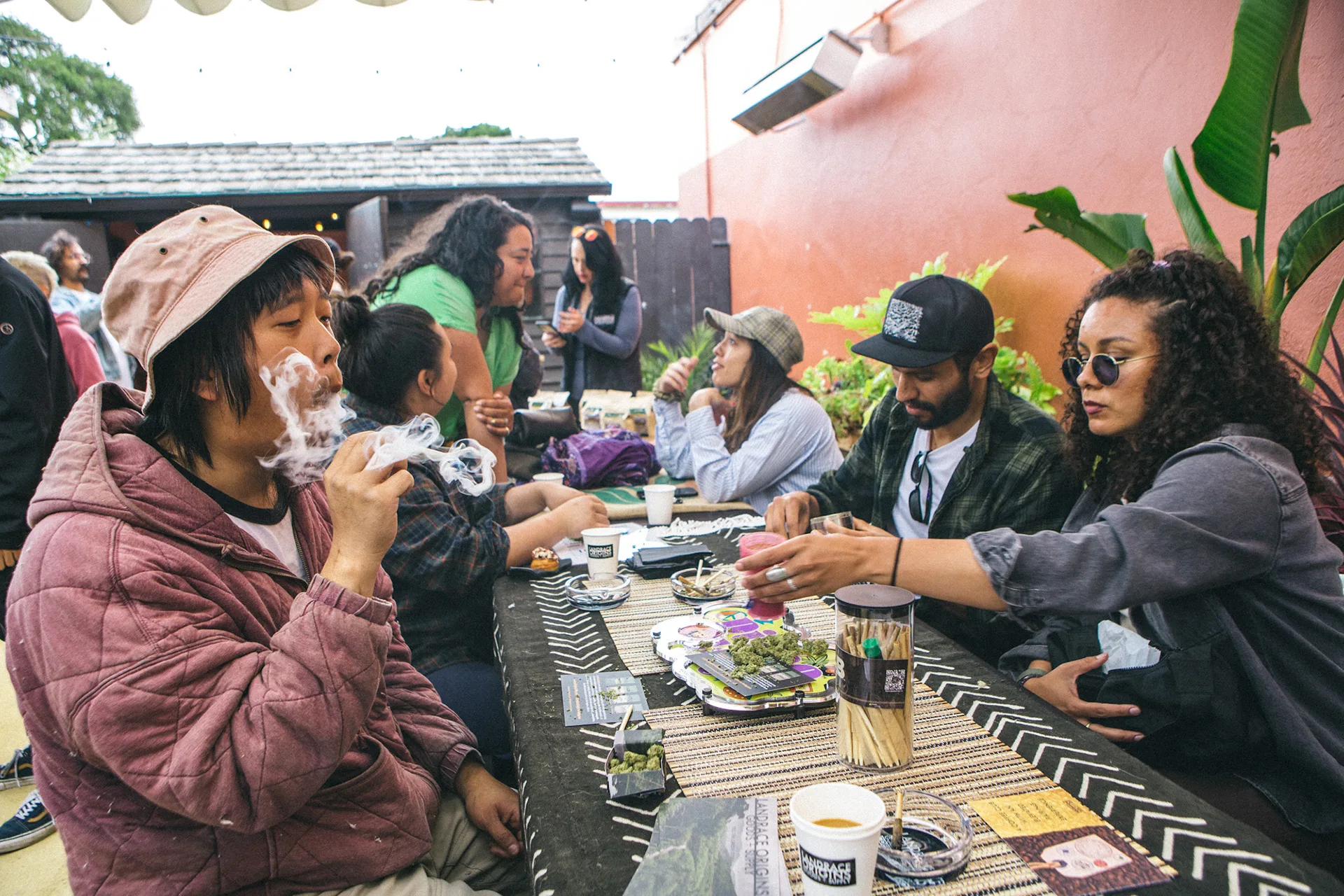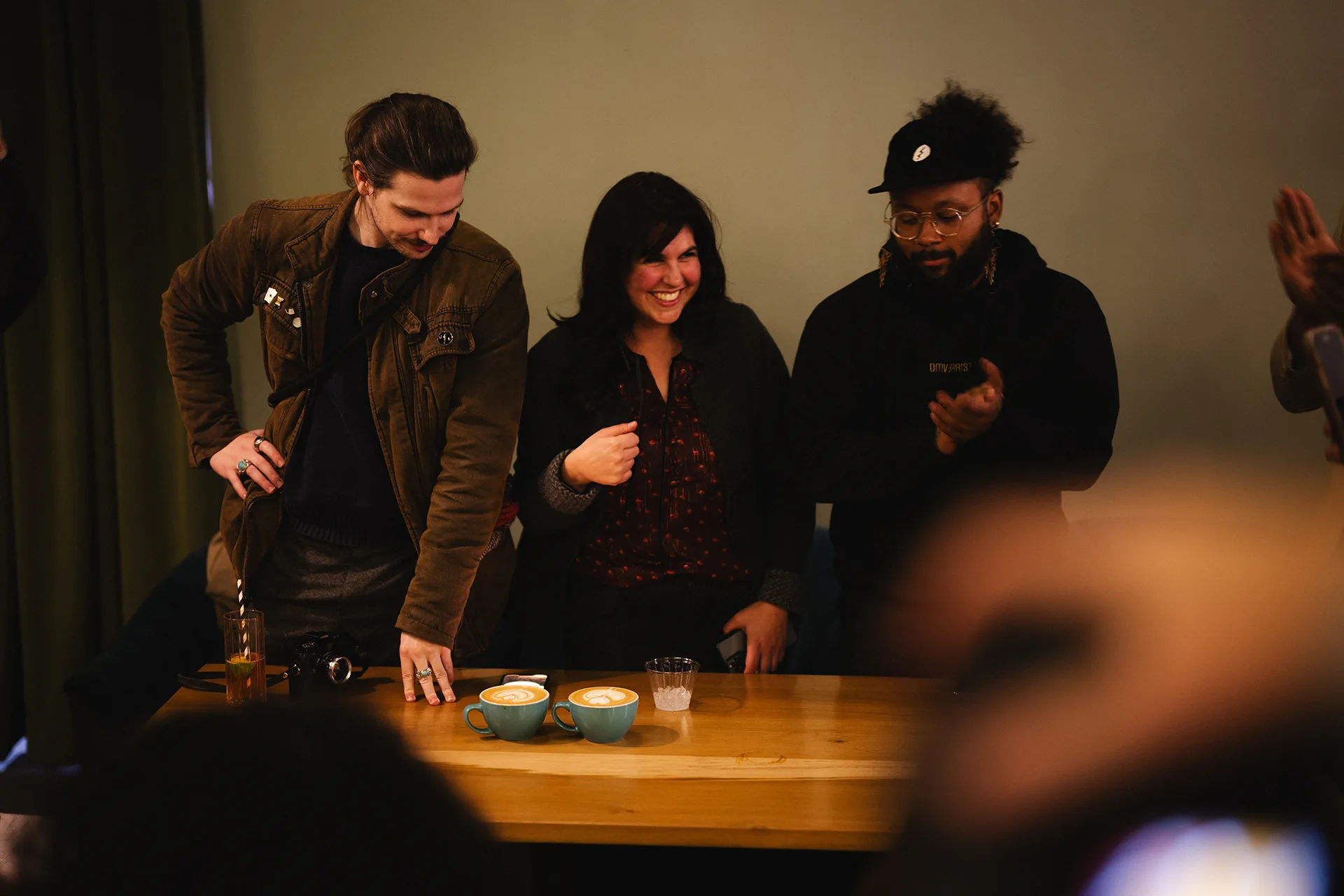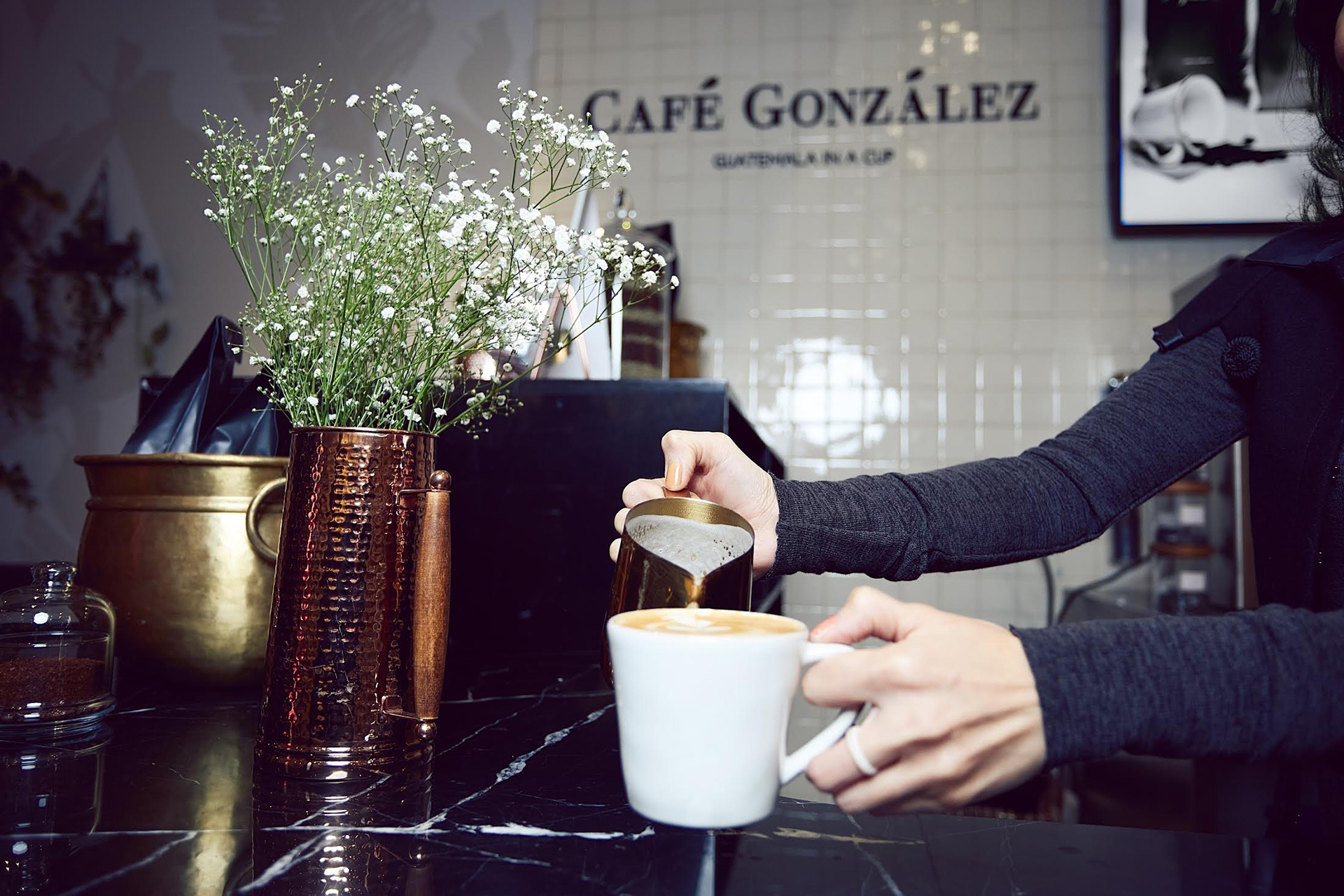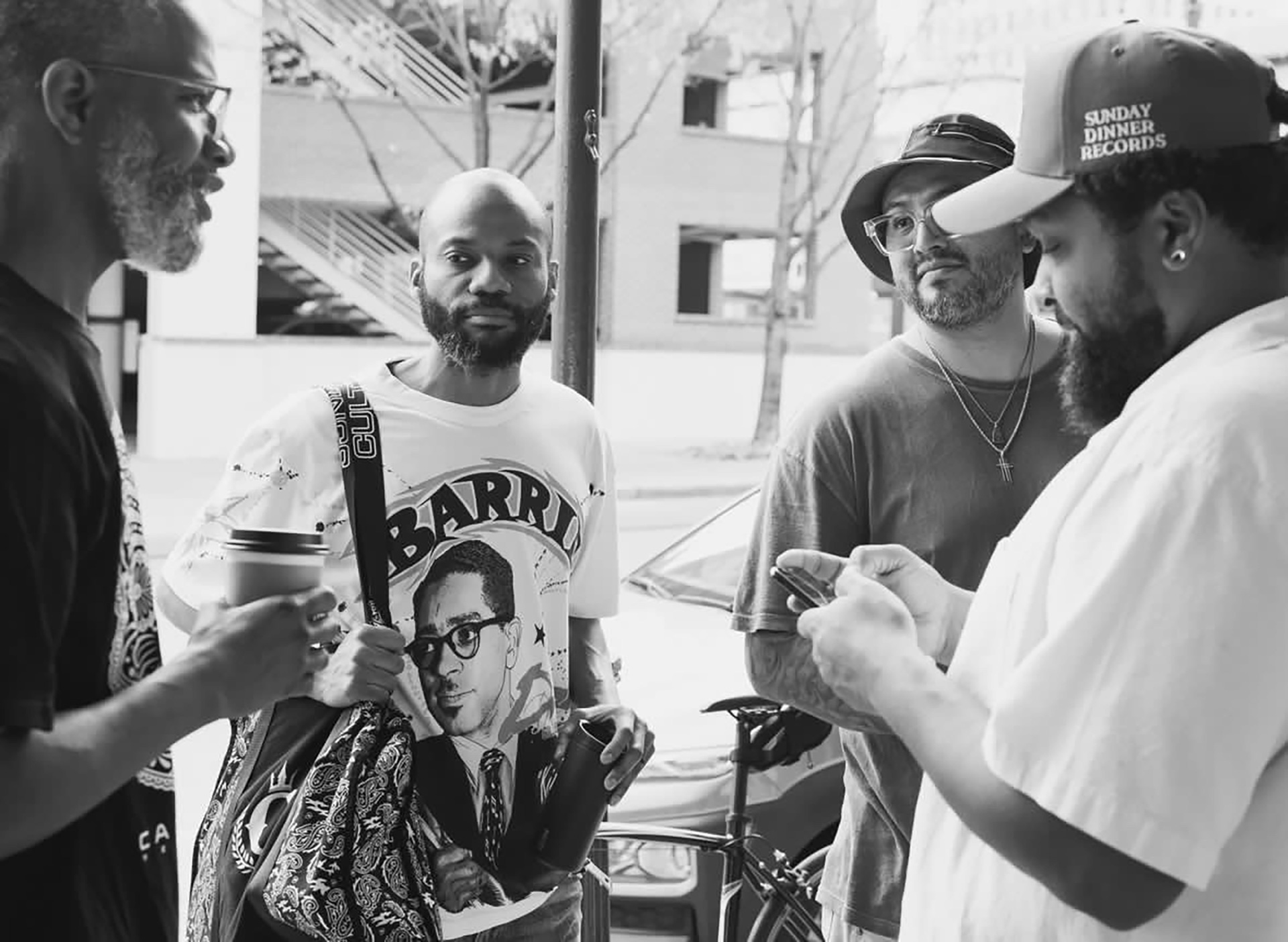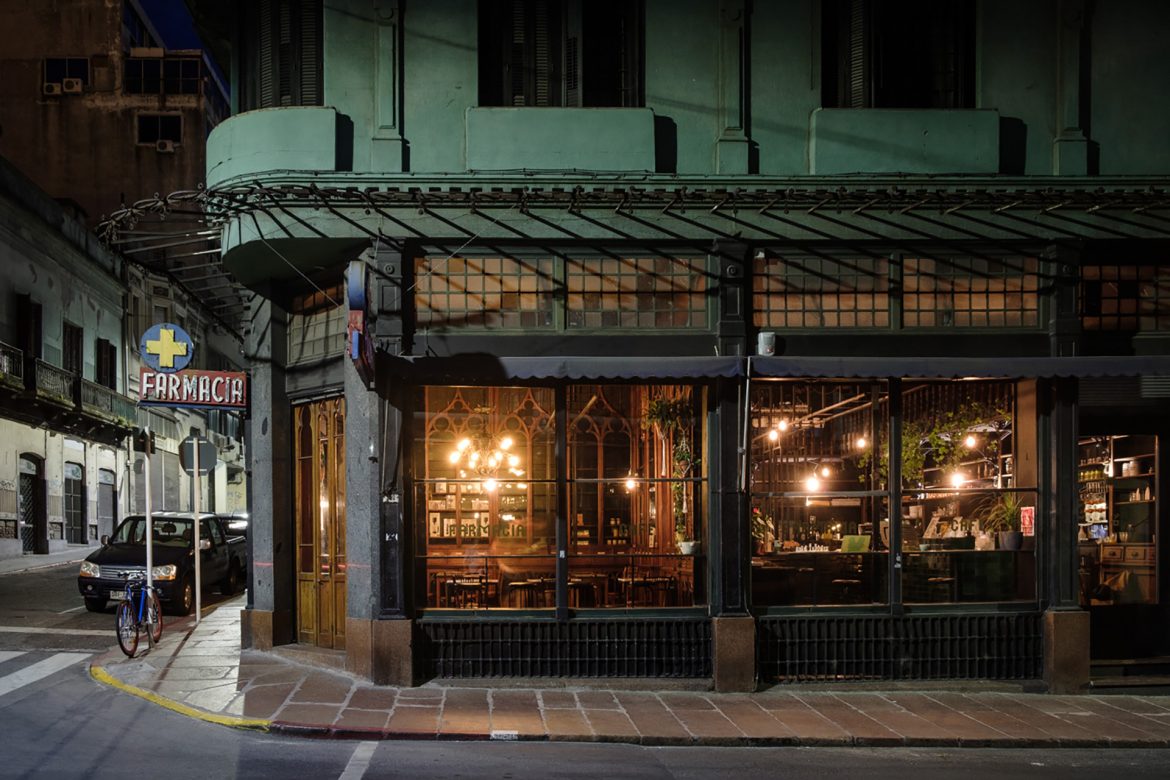
Since caffeine is the most popular drug in the world, there’s nowhere better than to get a fix in a drugstore, right? La Farmacia Café is one such establishment, a drugstore-turned-cafe in Montevideo’s old city, Ciudad Vieja, which today is undergoing something of a specialty coffee renaissance.
La Farmacia maintains the structure and some of the furnishings used in the days when a pharmacy operated in its place—in part because renovations weren’t allowed in the historic building it calls home. The tiles on the walls, a new counter, and some of the decor are all that’s been touched up.
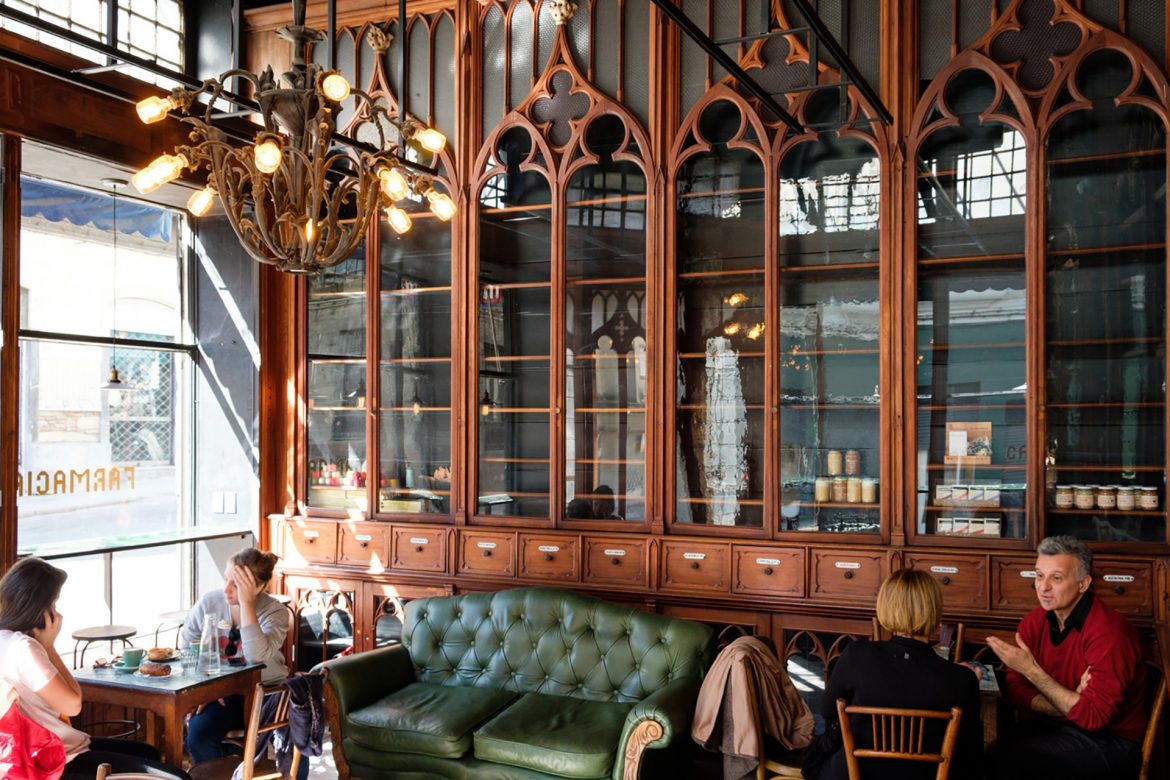
“We knew the place had a story to tell, as do many other historical buildings around the Old City that tell us about the habits and rituals of other times,” says Martin Chamyan, the head barista who runs La Farmacia in partnership with his siblings, Camila and Agustin. The Chamyans also own two other coffee shops in the city: La Madriguera Café and Club del Pan.
Chamyan explains that their aim was to bring back the old custom of drinking a cup of coffee standing by the counter, so they designed a massive counter where customers can interact with baristas, have their morning coffee, and head off to work. “On the other hand, we understood that the place deserved to be delightful, so we also set a place with proper tables and chairs,” he adds.
“The cool thing is that the old pharmacy worked pretty much the same way—it had two separate rooms, one for the preparation of the drugs, from that time when the doctor gave you a special recipe and the drug needed to be prepared in the laboratory of the place, and a front area where the formulas were sold,” Chamyan says.
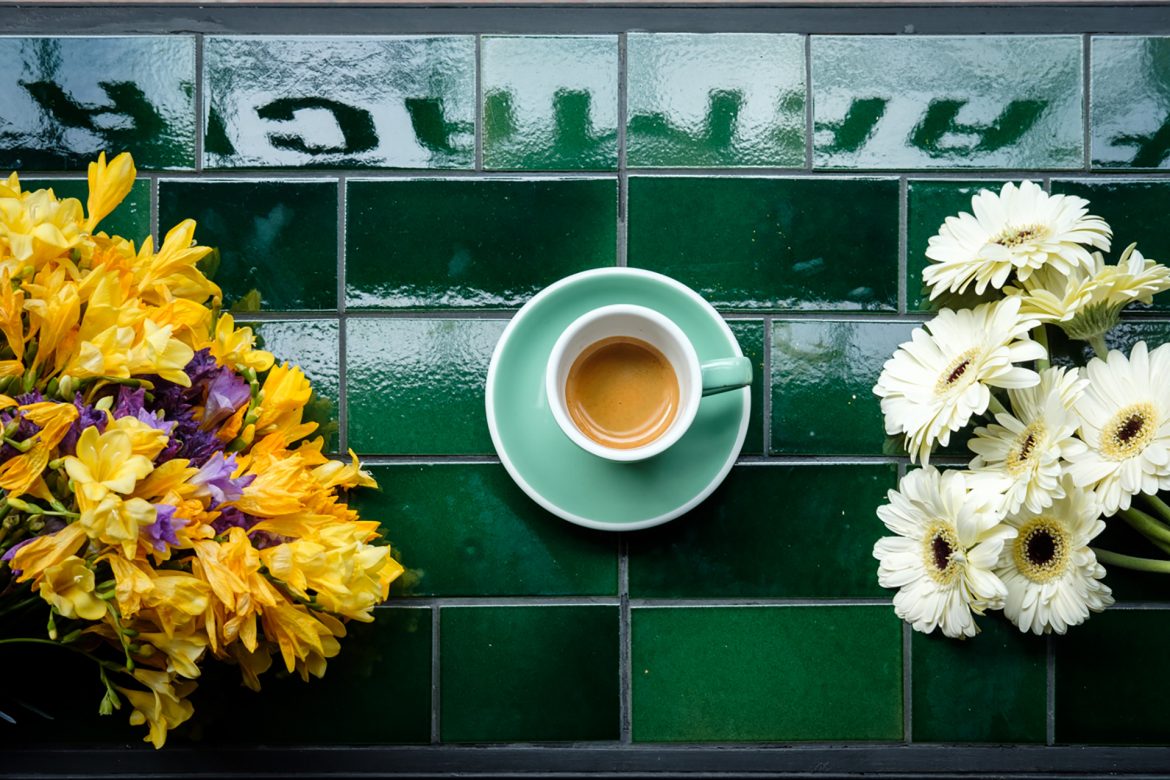
The “drugs” served here today range from espresso drinks to hand-brewed coffees on the Chemex, V60, AeroPress, French press, syphon, ROK, and cold drip. “We have a special overhead mirror so customers may see us prepare their coffee from above,” Chamyan says.
La Farmacia works hand in hand with MVD Roasters, a local roastery that started the specialty coffee scene in Montevideo—and has become a supplier to many businesses in the city. “As partners, we decide on each blend and single origin’s roasting profile for our espresso machine and other domestic brewing methods,” Chamyan says.
Chamyan’s interest in coffee started six years ago, when he was living in Sydney, Australia. “I just couldn’t understand how these people took such a beverage as a normal thing, and got really interested in understanding the why behind the what. My first experience working as a barista happened after really nagging the people behind the counter of my favorite coffee shop to a point where they thought the best idea would be to teach me to work there,” he says.
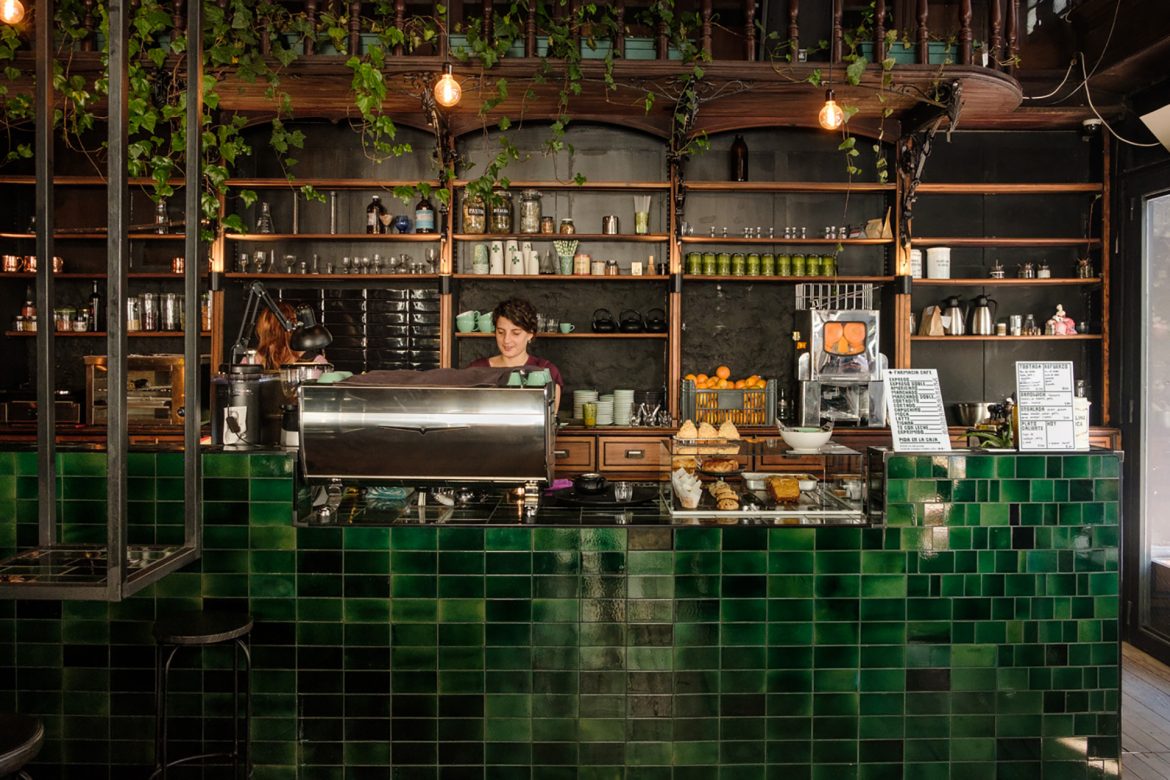
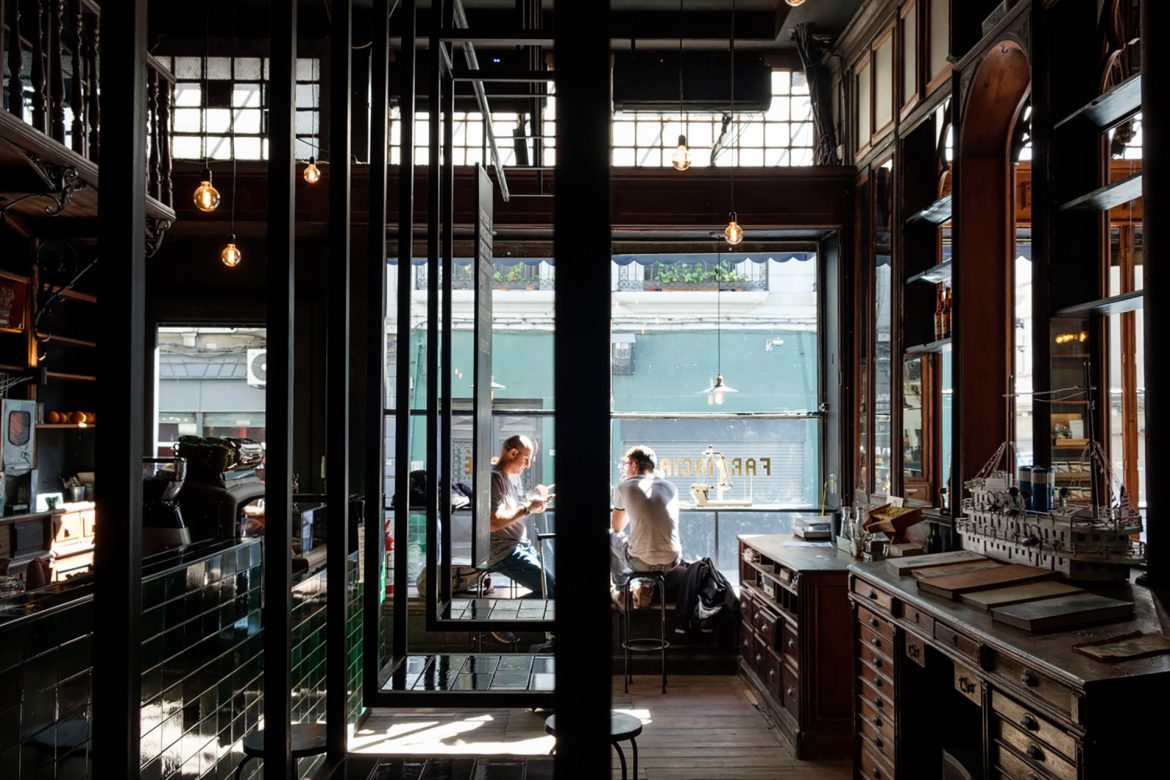
“La Farmacia came about as a result of this sharing and experimenting with other people about this passion. The owner of the building where La Farmacia operates waited almost 10 years for people who shared his interest for history, culture and, of course, coffee to come along,” he adds.
After several visits to Chamyan’s first coffee shop, La Madriguera, the building’s owner asked the Chamyan family if they would consider opening another venue. “Fortunately enough, up to that time, we had been teaching and welcoming new people to the coffee world so within a few months we had a solid team to start this new adventure,” Chamyan says.
He adds that coffee culture may be seen as a luxury in his country. The takeaway cups and the buzz of the big cities are a dream for Uruguay’s slow-paced people. “Coffee culture is not something that just appears in big countries from nothing,” says Chayman. Rather, he says, it follows a shift in the demands of a population, as part of a path towards evolving lifestyles and cultures. “That’s why from my perspective the Third Wave movement came to generate a new culture and new way of living with coffee,” he says.
More than serving the taza perfecta, or the perfect cup, for his customers, Chamyan now plans to go higher—or lower, if we take it literally. “We have a secret basement full of potential, and we have been discussing several ideas ranging from a bakery, a ping-pong arena, and a brewery. It all looks as though we could make all of them happen, but for the moment we are investing in having our own pharmacy’s craft beer,” he says.
Chamyan and his siblings are also developing methods to accept means of payments via cryptocurrencies such as Bitcoin or Attention Units (AU). “AU was tested in our first coffee shop and it allows you to earn money by watching advertisements, so if you would like an espresso you could possibly pay by watching two video ads,” he says. In the end, though, these are just shiny new ways to pay for the same old drugs.
Rafael Tonon is a freelance journalist based in Brazil. Read more Rafael Tonon on Sprudge.
Photos courtesy of Francisco Supervielle.




